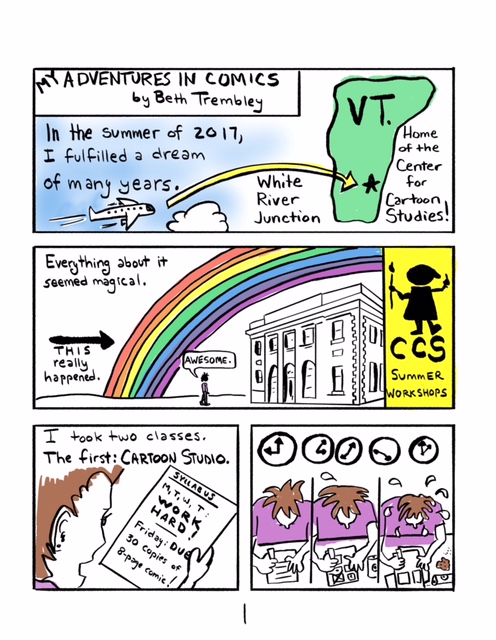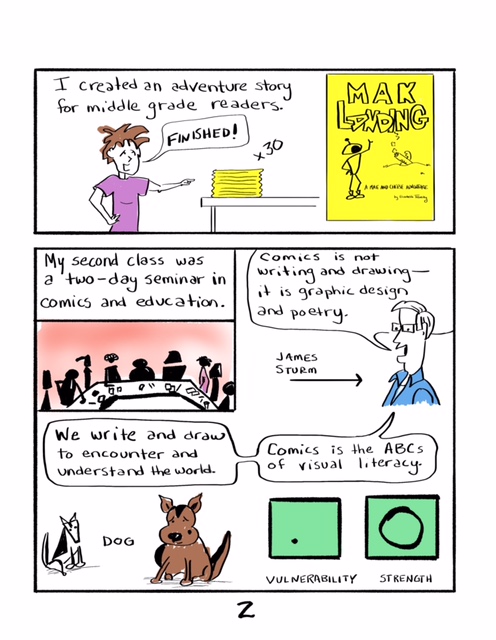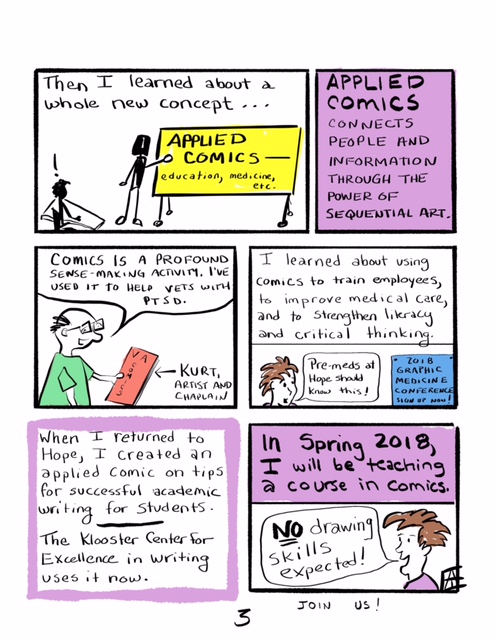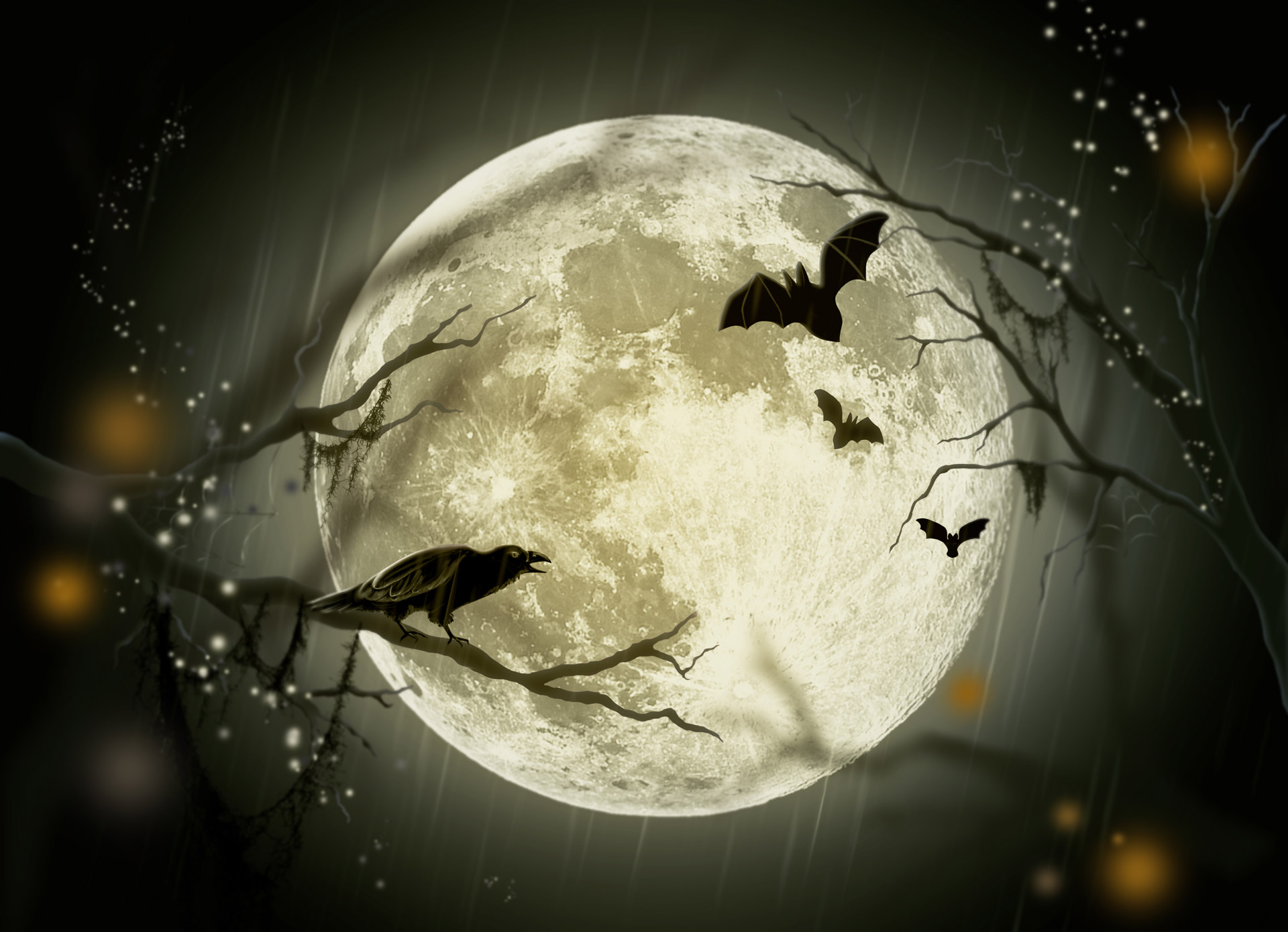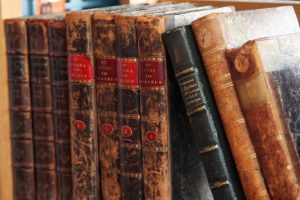Registration? Fear Not – English Department Has Your Back
Courses for Spring 2018
REGISTRATION! It strikes fear into the hearts of even the hardiest of students, but you, oh lovers of literature, have no worries. Why?
Because the English department offers so many terrific courses, you can’t go wrong! Check out these unique offerings in literature and creative writing for Spring 2018:
- The Beatniks with Prof. Hemenway
- Comics and Graphic Novels for Writers with Prof. Trembley
- Ethnic American Young Adult Literature with Prof. Montaño
- Novels of Adventure with Prof. Verduin
- Novel Writing with Prof. Trembley
- Vocational Discernment with Prof. Montaño
- Science Writing with Prof. Montaño
- Walt Whitman’s America with Prof. Pannapacker
- Creative Writing in the Community with Prof. Childress
- And MORE!
We’ve got courses on British writers, American writers, science writing, modern grammar, and other topics chosen just for you. You can find descriptions of these and more HERE at our department website.
Let us know if you have any questions by stopping by our offices or writing us an email. We’d love to hear from you and to see you in our classes!
EVENT: JRVWS Author, Paisley Rekdal
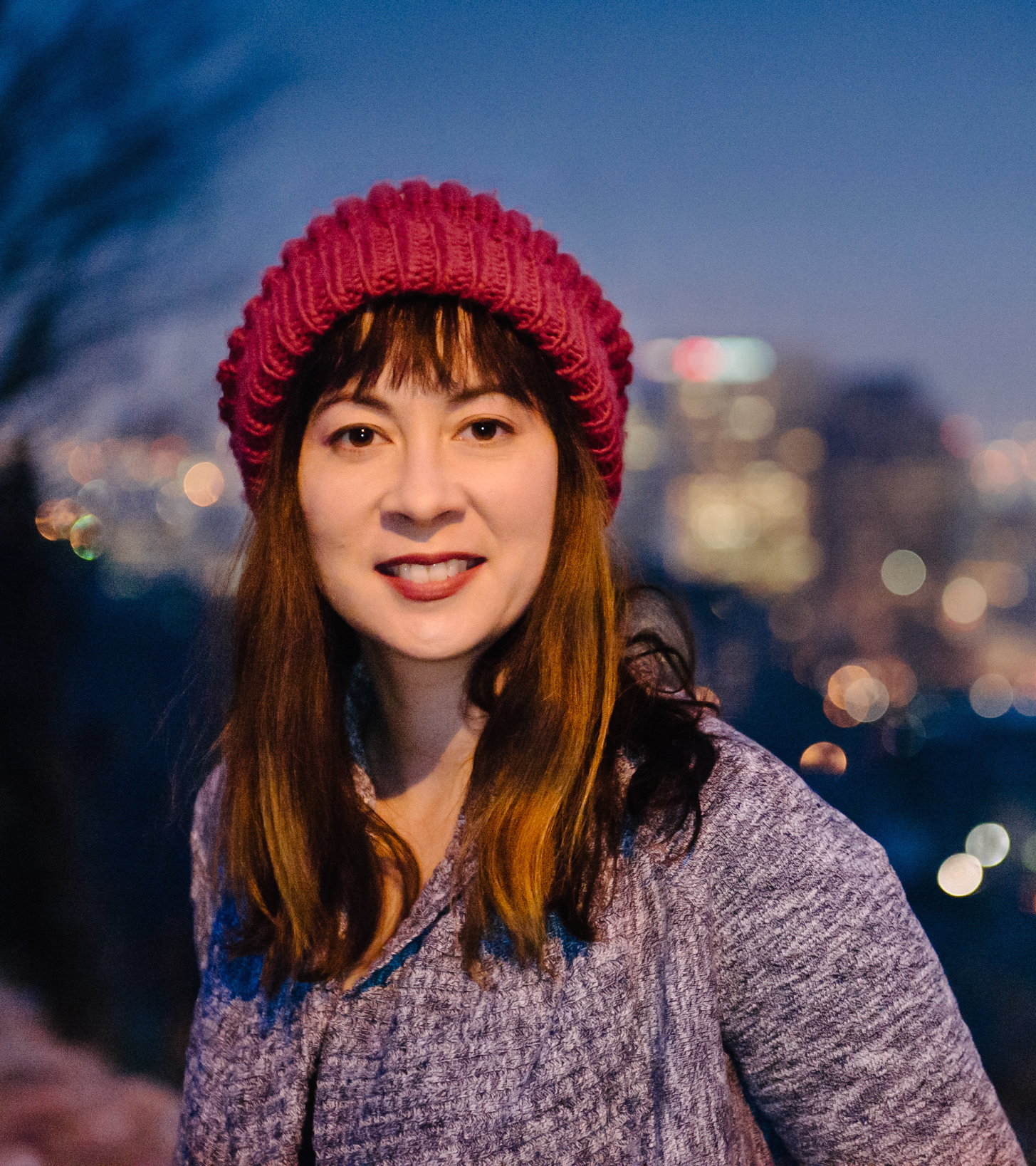
The second event of this year’s Jack Ridl Visiting Writers Series is almost here! This Thursday, October 19, JRVWS will host multi-genre writer Paisley Rekdal. Rekdal is the author of two books of essays and five books of poetry and has had work featured in a number of noteworthy journals. Rekdal’s visit will include a question and answer session at 3:30pm in the Fried-Hemenway Auditorium of Martha Miller as well as a reading at 7:00pm in the John and Dede Howard Recital Hall of Jack H. Miller Center for Musical Arts.
In Paisley Rekdal’s most recent book of poetry, Imaginary Vessels, she explores feminism, violence, identity, and themes of containment, inviting readers to reflect on their own place in the world. When I first read Rekdal’s poetry, I was struck by her images, which are at once vibrant, graceful, and captivating: her “palace animals’ teeth” or the “fine chinks of spine/ unlocking perfectly/ from each other.” Rekdal’s poems range from traditional forms and rhyme schemes, to more genre-defying, narrative pieces. Nevertheless, each poem demonstrates an unmissable and intuitive understanding of shape and craft.
Rekdal’s work in other genres is no less compelling. In her latest non-fiction book, The Broken Country, Rekdal continues to explore violence, but also looks at cultural trauma and the specific experiences of Vietnamese immigrants. Rekdal’s carefully chosen words were deeply moving and informative to me, though I had little previous exposure to her topics. She gives a personal and human face to the trauma experienced as a result of war and immigration. Weaving personal reflections with the careful analysis of other stories and events, Rekdal’s prose provides a unique understanding of violence and immigrant identity.
Don’t miss your chance to connect with Rekdal this Thursday and hear her words come alive. In the mean time, you can also get your own copy of her books at the Hope College Bookstore or be thinking of questions to ask her at the Q&A.
This is also a good time to remind the Hope College community and the Holland community at large of the invaluable opportunity offered by JRVWS: the chance to talk with and hear from publishing writers. Be sure to come out to this event and contact the director of the series, Susanna Childress, for more ways to get involved.
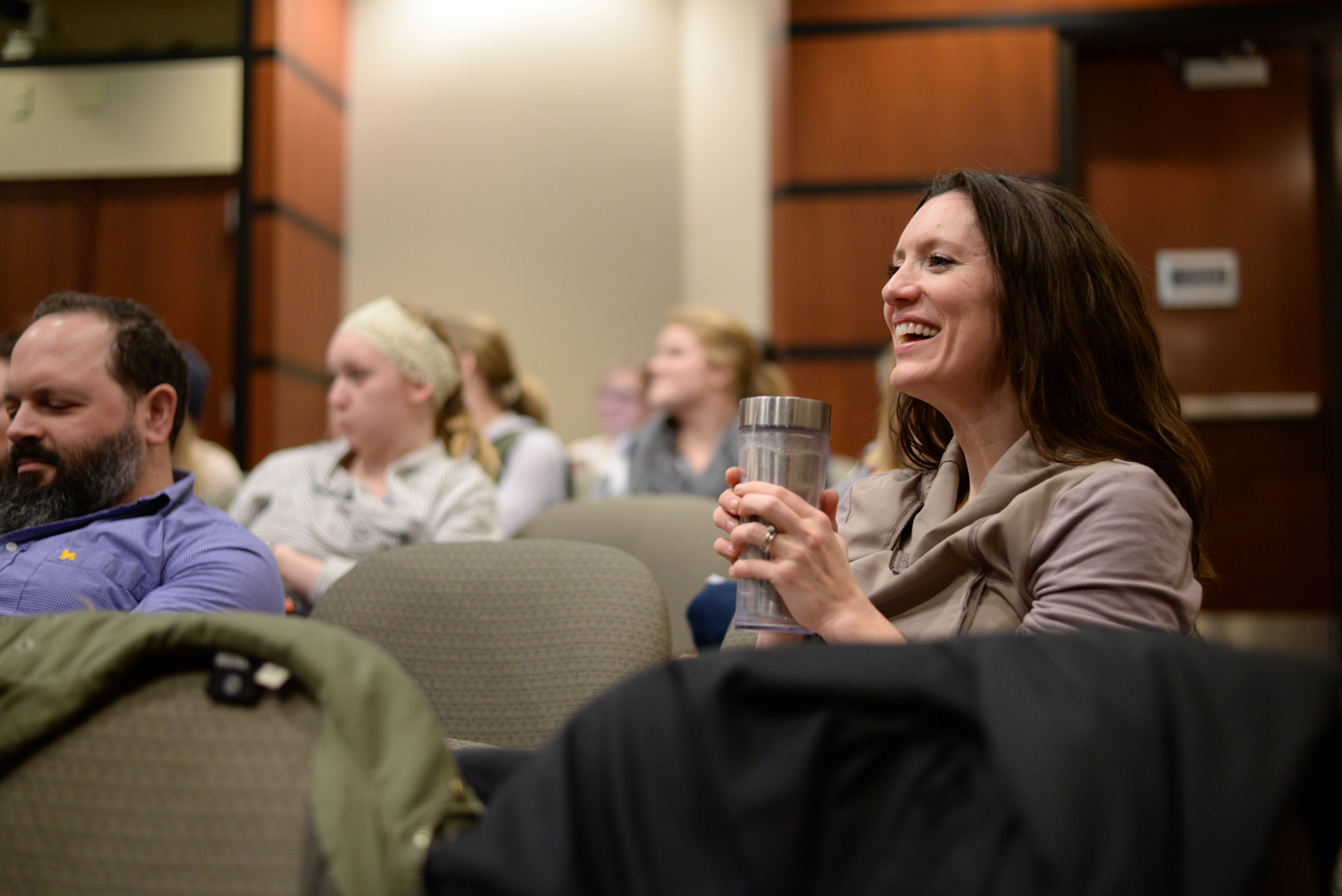
For more details about the event, check out the Jack Ridl Visiting Writers Series Website
— Grace Hulderman, JRVWS Student Intern
Alumni Feature: “Do What You Love”
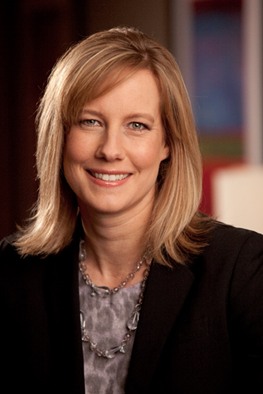
What are you doing now?
I am a Senior Vice President and Group Publisher for Zondervan, which is part of HarperCollins Global Publishing. I oversee the acquisitions, marketing, and publicity for Zondervan and Zonderkidz titles. We publish books, gift books, videos, Bibles, curriculum and digital products including audiobooks, ebooks, digital books, and apps.
How did your Hope English education shape you?
I was set to become a stockbroker or an accountant while pursuing my Business Administration degree. When I became a senior, my advisor informed me that I only needed four more credits to earn an English major, so he helped me locate an internship with a magazine publishing group near Hope’s campus. Through this experience, I realized my business focus along with my love for writing, editing, and being creative could be blended together in the world of publishing. If I had not been guided toward that internship, I may have had a long path of figuring out my career in light of the two loves: managing money and managing the books, actual books—not just accounting books!
What advice would you give to English majors today?
Absolutely do what you love and find ways to express that through your work. I loved books, so as a sophomore and junior, I worked at an ABA independent bookstore in Holland. I loved to write, so as a senior I wrote movie reviews, author bios, and short articles for newspapers and magazines. The internship I held at the magazine group allowed me to try many different areas of publishing (writing, design, finance, author relations, marketing, publicity, project management, etc.) and this allowed me to identify what tasks and responsibilities generated energy within me rather than zapping my energy and leaving me depleted.
Just a few weeks after I graduated from Hope, I asked the Career Placement office if I could hold informational interviews with Hope alums who had “edit” or “publish” in their titles. I landed fourteen phone interviews and from those calls, and I was able to schedule five entry-level job interviews in New York City. One alum who worked at Reader’s Digest recommended me for a job. I interviewed, I got my first job after college, and to this day I’ve never even met her in person. There are many Hope alums around the world who have a strong interest in helping others in any vocation. Be sure to tap into that network, even if it’s just to ask a few questions…including: “do you know of any entry-level job openings at your current employer?”
If you could teach any English class, what would be the title?
How to Have Fun Every Day at Work – OR – Just Because You Are an English Major Doesn’t Mean You Have to Be a Teacher—OR—English Majors Can Do Anything
Can you share a favorite book read recently or in college?
In college: Personal History by Katherine Graham – really well written and inspiring for women who want to change the world.
Recently: Solo by Kwame Alexander because I published it, and I want everyone to read it even if it is YA fiction.
Faculty Feature: Welcome to Dr. Christiana Salah, Assistant Professor of English
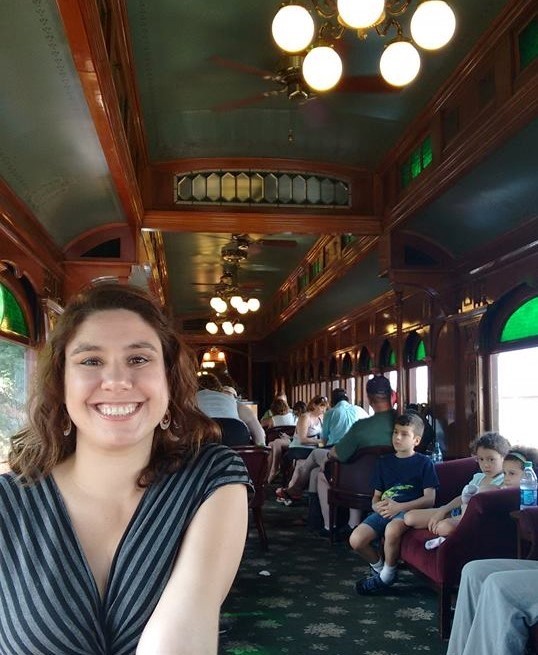
What do you enjoy most about teaching?
The number one thing? Conversation. To me, there are few things in life more fun than discussing a good story. Maybe that’s because I grew up in a family of very, very talkative bookworms! I still talk to my sister and brother about books all the time, and—like a lot of people who teach—both of my parents worked in education. But when it comes to teaching at the college level, what’s most exciting to me is that students have incredible ideas of their own to shar—my duty as a teacher isn’t just to hand out knowledge, but to do my best to foster deep, interesting, enjoyable discussions.
What excites you about your scholarship?
Well, like I said, growing up I was always the kid with her nose in a book. At some point along the way I started reading classics, and I fell in love with the 19th century—Charlotte Bronte, Charles Dickens, Arthur Conan Doyle, etc. In my scholarship, I’m motivated to understand what values, conventions, and shared experiences formed the perspective of writers like these. Different as their world was, so much of what they were dealing with applies to our own time. Reformers faced many of the same concerns—overcoming obstacles for women, bridging economic gaps, promoting social progress without losing a sense of shared identity—yet we rarely look back to this period for inspiration, or pitfalls to avoid. Instead we often see it as a simpler time, a time of black-and-white morality, which just isn’t correct. So my scholarship is mostly about making those connections and complexities visible.
Where are your favorite places to travel? Why?
I’ve spent time in England and Ireland, which was wonderful—getting to see the locations of some of my favorite books, soaking in gorgeous landscapes, and drinking as much tea as possible! But probably the most incredible trip I’ve taken was to New Zealand. A good friend lives there, so I was able to spend several weeks and tour both the North and South Islands. It’s a breathtaking place. Driving around you might find yourself among green sheep pastures that look like County Kerry, and an hour later be in a desert with snow-capped mountains. And of course, they have Hobbit holes there…
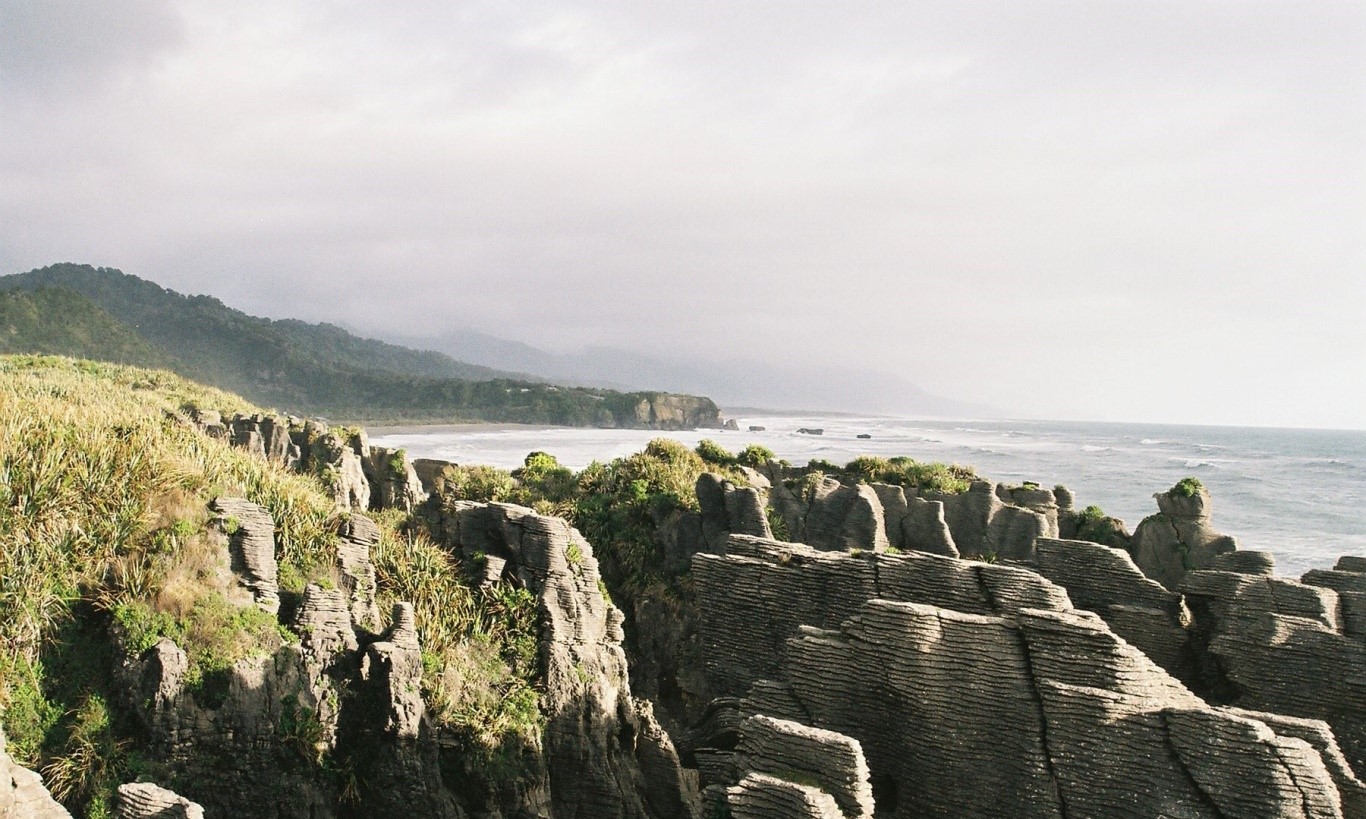
As for my next trip—nothing planned, but I’d love the chance to see where my ancestors come from in Lebanon someday. That said, I grew up on the Massachusetts coast and my family is still there, so for the immediate future I’ll probably be traveling most to that area.
Do you have a favorite book or author?
Is that really a fair question to ask a literature professor? I couldn’t possibly pick one. I’ve mentioned some favorite Victorian writers already. I love Jane Eyre, I love David Copperfield. I’m a huge Jane Austen fan. Modern fiction rarely has the same magic for me, with a few exceptions, like A.S. Byatt’s incredible novel Possession. But when it comes to the 20th and 21st centuries, what I read most is children’s literature! If you stop by my office, it will quickly become evident that I love Rowling, Lewis, and Tolkien. I do scholarship on children’s fiction alongside my other research, because I’m in love with how vivid and fresh the field is. The people who write and study children’s literature have so much forward momentum—their passion for justice and improving the world constantly encourages me.
What appealed to you about Hope when you first considered working here?
A lot of things, but what comes to mind first is the value Hope places on uniting faith and intellectualism. As a life-long practicing Catholic, I love the idea of bringing the pursuit of spiritual truths together with rigorous critical thought to serve the goal of creating a more just and compassionate world. Teaching in an environment like this opens up cool possibilities…. For instance, my classes can dig deep into the motivations of Victorian writers whose social messages were profoundly informed by Christianity. And since Hope values understanding between diverse faith traditions, I’m excited about the wide variety of perspectives my students will bring to these conversations.
Student Feature: Shanley Smith
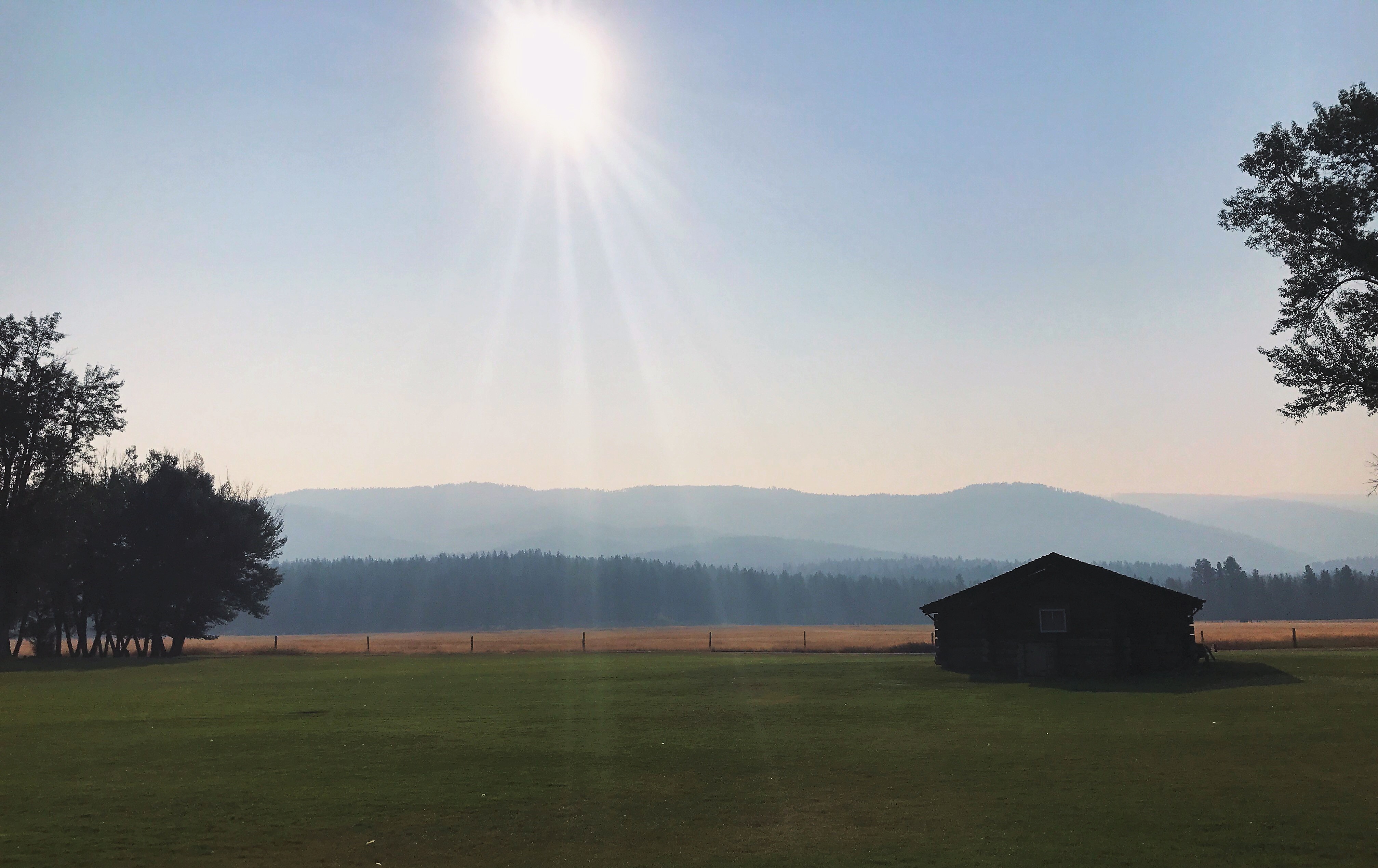
This summer I had the opportunity to attend Chris Dombrowski’s Bear Grass Writing Retreat at a dude ranch in Montana, where I was able to meet and talk with a number of authors, agents, and publishers. My time there reminded me of the necessity of connecting writers together for both artistic and emotional encouragement. Within four days, I was engaged with a community of like-minded artists, a group of people I dreaded leaving.
Dombrowski and his good friend and fellow writer, Shann Ray, will be coming to campus on Tuesday, September 19 to give the Tom Andrews Memorial Reading for this year’s first event in the Jack Ridl Visiting Writers Series. Both write across genres of prose and poetry, while sustaining a liberal arts mentality, a perspective informed by many academic disciplines that deeply influence their work. Ray, who holds a PhD in psychology, writes with a poetic rawness about race, gender, and familial ties in books such as American Masculine: Stories and American Copper: A Novel. Dombrowski captures the spirit of the terrain from Montana to the Bahamas with his poetry collections By Cold Water and Earth Again and his recent, ravishing non-fiction book, Body of Water: A Sage, a Seeker, and the World’s Most Elusive Fish.
Dombrowski’s vision to create a retreat where authors and aspiring writers can connect and inspire one another coincides perfectly with the vision of the Jack Ridl Visiting Writers Series. The series prides itself on connecting students to accomplished writers, allowing for a deep dive into stories and poems while providing a chance for one-to-one conversations in classrooms, lunches and dinners, and at Q & A sessions and talkbacks. After spending time with him in Montana, I can assure you that Chris, a Hope alumnus, is a writer not only of great craftsmanship but one who cares about and nurtures this vital connection between writers.
I encourage you all to attend both the reading and Q & A, where you’ll be able to meet both Dombrowski and Ray. I hope to see you all there!
For more information on these events, please visit the Jack Ridl Visiting Writers Series website.
~ A note from Susanna Childress, director of JRVWS:
It’s that time again! Yes, the start of another academic school year also means the start of another great season for the Jack Ridl Visiting Writers Series. On September 19, we’ll welcome Chris Dombrowski (’98) and Shann Ray for the Tom Andrews Memorial Reading. Between the two of them, they’ve written more than half a dozen award-winning and best-selling books.
And the fun continues throughout the semester!
Next month, October 19, another multi-genre writer, Paisley Rekdal, will spend three days on campus visiting classes, giving students feedback, and doing a Q&A and a reading; Rekdal has both a nonfiction book and a volume of poetry coming out this year. In November, JRVWS joins forces with The Big Read to welcome Julie Otsuka, whose award-winning books are being read throughout the community—from high school and college classrooms to senior book clubs.
And the spring semester is packed with multi-genre and award-winning writers as well! We’ve got a digital storyteller and an ex-con poet-memoirist, a spoken word champion and a Pulitzer Prize finalist.
You won’t want to miss these readings, but with JRVWS, you can do one better than that: you get the chance to ask the writers questions or receive feedback on your own work, have them visit your classes or sit across from you at a table for lunch or dinner—invaluable experiences and exposure to living writers. All for free!
Please do join us for a wonderful season of great writers, great books, and great community. See you next week!
after the birth of the simple light
Some Words For The Summer
A Flight for Time
By Dana Lamers VanderLugt
A friend once told me that if you really want to do something, first write down all the good excuses you’ve got not to do it. When it comes to writing, I’ve got a few:
● All the words have been said.
● I don’t have the right notebook or pen.
● People will think I’m a fake.
● People who didn’t like me in high school will say bad things about me.
● I can’t teach AND write.
● My kids keep interrupting me.
● It’s too late. I should be further along by now.
● I’ll wait until my kids are older.
● Nobody cares.
● I’m not that good.
● I’m tired.
● I’m hungry.
● I just got a text.
● I should check my email.
● I’ll look at Facebook instead.
● I’m way behind on laundry.
● I should grade papers or revise tomorrow’s lesson or brainstorm a new unit.
● I have nothing new to say.
● All the other writers have said it better.
● I’ll offend someone.
● I’m not spiritual enough.
● I don’t have time.
This month I said goodbye to another group of college writing students. And the last words I left them with were: “Find that thing — that thing you don’t think you have time for or that thing you loved but stopped doing when you were 11 or 12 because you didn’t think you were good enough, and make time for it.”
As usual, I was mostly saying words I need to hear. Giving reminders and passing along wisdom that good teachers and friends have shared with me.
Maybe a couple of my students were reminded that they do actually enjoy writing — but for others, writing is not the thing, but it’s something else: dancing, drawing, gardening, baking, yoga, reading — whatever. I tell them, just spend a little time on it, and maybe even release the temptation to think you need to be so good at it all the time. I read aloud this piece by Anne Lamott in which she urges us to find “half an hour of quiet time for yourself…unless you’re incredibly busy and stressed, in which case you need an hour.” And then the students walk out the door to study for exams, and I head home to a house full of people who call me Mom, and the hard work begins — we have to figure it out. We have to fight for it.
Excuses are, of course, easiest when I’m busiest. It’s so much easier to blame my lack of writing on this family I have (who insist on eating several times a day), the boys’ baseball schedules (three boys playing baseball is no joke), the papers I need to grade (143 8th grade projects + 17 ten-page research papers), and the laundry I never put away (thank goodness for the door on that laundry room.) Oh, and that awful habit I’ve gotten into of checking all things on my phone — email, Instagram, Facebook — one last time before I go to bed.
But the reality is that I make time for what matters — and too often I find myself using my busyness as a not-so-clever form of procrastination. “I would, but first I need to…”
Just because something is good for me doesn’t mean it’s easy for me.
And this is especially true for writing. Red Smith said, “You simply sit down at the typewriter, open your veins, and bleed.”
The month of May is a perfect storm for calendars — little league, end-of-the-school-year this and that, deadlines, and, and…but if not now, when? There will always be calendars, always be excuses.
So, I’m committing — on this Saturday morning when I tiptoed out of bed to steal an hour before the rest of my house wakes up — to taking the advice I offered my students about fighting for time for the things that matter in the months ahead. I know summer is coming and the pace of our household will slow a bit, but other things will be there too, including excuses.
Congratulations to our award winners!
We’re SO PROUD of our English Department Award winners – many congratulations!
George Birkhoff English Prize: Rebecca L. Stanton
Erika Brubaker ’92 Award for Promising Achievement in the Study of Literature: Morgan S. Boer, Melanie G. Burkhardt, Kellyanne E. Fitzgerald, Theaphania A. Patterson, Hannah J. Pikaart, Shanley E. Smith, Madison T. Vererka, Brooke V. Wharton, Ryan T. Woodside
Williams Eerdmans Poetry Prize: Mitchell T. Van Acker
Williams Eerdmans Prose Prize: Elizabeth M. Ensink
Stephenson First-Year Writing Prize: Mitchel D. Achien’g
Sandrene Schutt Award for Proficiency in Literature: Ashley N. Bakker and Holly J. Wierenga
Erika Brubaker ’92 Awards for Proficiency in Literature: Gretchen Krause and Matthew J. Pelyhes
John D. Cox Award in Shakespeare Studies: Anne L. Oxendine
Clarence DeGraaf English Award: Robert D. Lampen and Cullen R. Smith
Stephen I. Hemenway Award for Promising Achievement in English Teaching: Aimee R. Hoffman and Emily M. Martin
Louis and Mary Jean Lotz Prize in Creative Writing: Elizabeth Ensink
Jennifer Young Award in Creative Writing and Literature: Katherine A. McMorris
Hope College Academy of American Poets Prize 2017
By Pablo Peschiera
About the Prize
The Hope College Academy of American Poets (AAP) Prize award is funded by the University and College Poetry Prize program of the AAP. The academy began the program in 1955 at 10 schools, and now sponsors nearly 200 annual prizes for poetry at colleges and universities nationwide. Poets honored through the program have included Mark Doty, Louise Gluck, Joy Harjo, Robert Hass, Robert Pinsky, Sylvia Plath, Gjertrud Schnackenberg and Charles Wright. The winning poet receives $100.
Judged by Brian Barker
Brian Barker is the author of The Animal Gospels (Tupelo Press, 2006) and The Black Ocean (Southern Illinois University Press, 2011), winner of the Crab Orchard Open Competition. His poems, reviews, and interviews have appeared or are forthcoming in such journals as American Poetry Review, Poetry, Diagram, Kenyon Review Online, Indiana Review, Ploughshares, TriQuarterly, The Writer’s Chronicle, The Washington Post, The Cincinnati Review, Blackbird, and Pleiades. His awards include an Academy of American Poets Prize and the 2009 Campbell Corner Poetry Prize. He is married to the poet Nicky Beer and teaches at the University of Colorado Denver, where he is a Poetry Editor of Copper Nickel.
Dr. Barker writes:
What a pleasure to read this fine group of finalists for Hope College’s Academy of American Poets University and College Prize. All the poems were quite strong, which made the final decisions difficult.
Winner

Dr. Barker writes:
I love the way “Coelacanth” yokes together a colloquial voice with a probing meditation on otherness and beauty. The second person address to the coelacanth is playful but intimate. The poem surprised me more than once with its metaphoric and narrative leaps that weave together an examination of being, beauty, race/ethnicity, and belonging. An ambitious poem.
Coelacanth
I have been meaning to tell you,
you should google yourself sometime.
Your pictures are all over
the internet. Even the Smithsonian
thinks you are worth
preserving, although they call you
USNM 205871
or “a living fossil”
but it’s just because
we only had your great great
great great great great
uncle’s imprint for decades.
We assumed you were gone
from our living, swimming world,
and then we pulled you up,
all grey and yellowed and ghostly,
and you had bones extending
into limbs that don’t quite move
like fins, and extra fins
compared to Koi and Nemo
and betta fish lagging
on grocery store shelves.
It’s hard to fit you into the places
we’ve made in our minds for what
fish are supposed to be.
Like when Columbus landed
in San Salvador, and the people
weren’t Indians, but there couldn’t
be any land to the West
other than India in his mind.
And their different skin
made them not
European and so Indian.
We found you in the Indian Ocean,
and we keep finding more
except never alive by the time they reach
the surface, because you live
in that twilight zone depth
where the pressure could kill
us in so many ways.
And we already do such a good job
of that, with the pressures
to be something that fits
into people’s minds.
But if you dive a little deeper, past
all the negative comments
on the internet, you might find
your scientific name: Latimeria.
You’re named after a woman:
Miss Marjorie Courtenay-Latimer,
who noticed you in a fish market among
all sorts of sharks, she said,
you were the most beautiful fish
she’d ever seen.
She knew your characteristics were special
because they’re “ancestral”
which could sound a lot like other bad things
like primitive or old or out-of-date,
yet so many of us humans—The Chinese,
some Africans and Native Americans
(who we used to call Indians)
—worship ancestors with hazy
pictures and food and the smell
of spice and the past, and these days,
antique stores and department stores
raise prices on “vintage” items
that are really just out-of-date or old or primitive.
And Miss Marjorie, she got it,
after hours alone at the museum, setting
specimens in place, waiting
for the reason she left nursing school
for this museum at the bottom
of Africa, with a bottled
piglet with six legs,
and six sick birds,
waiting for someone to tell her
it was the right choice. Maybe
when she saw you, she saw
the way your silver scales, scattered
like bald spots, mirror the sky.
Maybe she knew that the data
and comparison to fossils
and lab work would mean more
than the color of your fins,
but at first that didn’t matter.
She just wanted someone to say,
you’re beautiful.
Honorable Mention
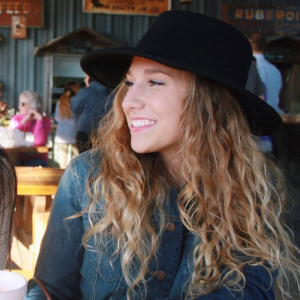
Dr. Barker Writes:
I admire the way “Flower Body” takes familiar symbols of sexuality—blossoming and ripe fruit—and refashions them in a lyric exploration of vulnerability and eroticism. I love the metamorphosis in the last stanza of the blooming body into the dangerous brambles, but a danger met, ultimately, by a lover’s tenderness. All of this is wrapped up in a rich poetic music as sensual and visceral as the imagery itself.
Flower Body
I like to talk about hips and curves.
Imagine my body not weeping but blooming
like blossoms on the cherry tree
or falling, heavy and swollen, to the earth
like the overripe fruit on my sister’s chest.
In a spoon, I glimpse my lip bulging
in a ribbon of silver and think myself
a figured thing. Fruit bruises in a bowl
on the counter and my hips open
against their skin – petals of bone spreading
into a shape you can hold. A smudged edge
curling in the pink of your palm
like the infant bud of a bellflower.
In a car, you slip a hand around my waist
and I am the bramble you are caught in,
my suckering roots around your fingers,
but you are kissing my thorns
with the diligence of a gardener
tending the flourishing forsythia,
wrapping my edges
with the soft of your hands.


